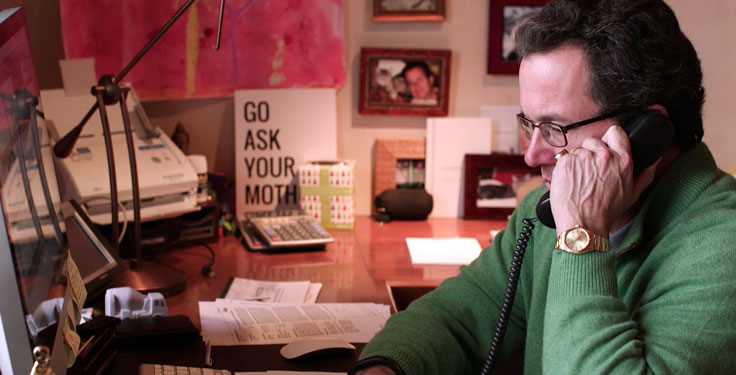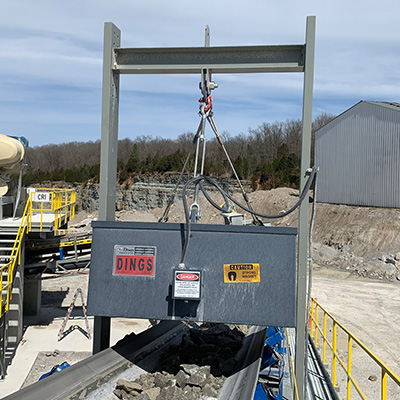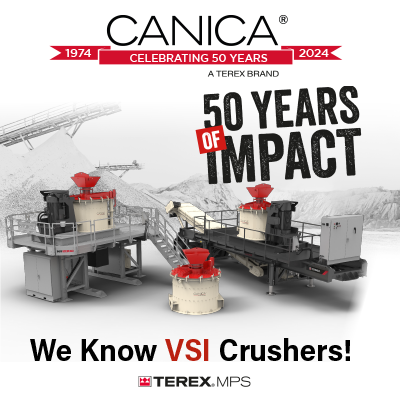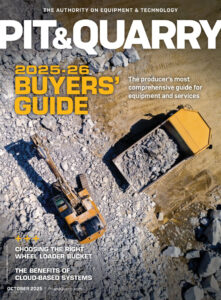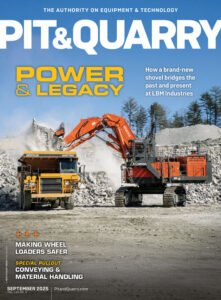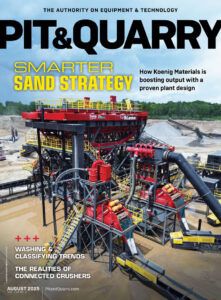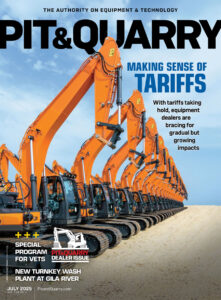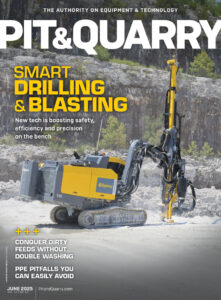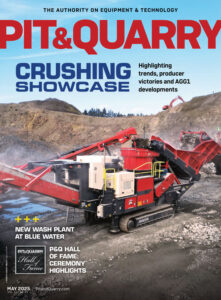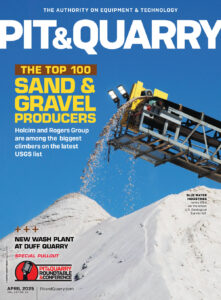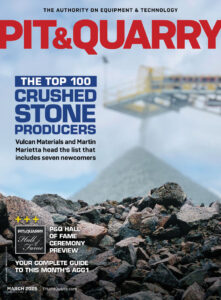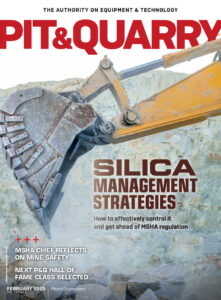Tom Hill, the founder of Summit Materials who is now a member of the Knife River Corp. board of directors, paid the magazine a visit at AGG1 Aggregates Academy & Expo earlier this year in Nashville. During the interview, which can be heard in full in Episode 13 of P&Q’s “Drilling Deeper” podcast, Hill reflects on his decades in aggregates and how the industry is positioned for the decades to come.
P&Q: The nature of M&A has changed over the years, but it seems M&A right now is very healthy. It was kind of in question last year because of inflation and interest rates getting a little bit high, so people were maybe more reserved. But we just continue to see deals get done – and we’ve seen some big ones done lately.
Hill: Certainly, the M&A market in the heavy building materials sector is very, very healthy. You’ve seen very large deals. I think there have been a few more moderate to smaller deals done. But I still think the industry, compared to many other industries, is relatively fragmented. So, there’s still opportunity out there.
There are a lot of buyers; there are a lot of buyers with a lot of cash. The industry is very healthy. So, businesses’ results are very good and, as a result, they have a lot of cash. There’s a lot of competition out there for deals right now.
I’m glad I started my business in 2009 at Summit and not today. That’s for sure.
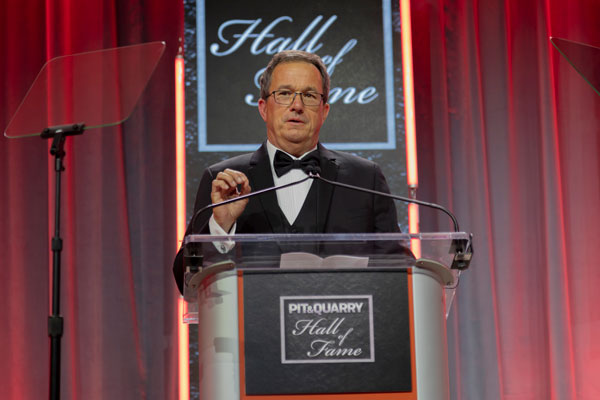
P&Q: Summit’s start in 2009 came after you spent nearly three decades at Oldcastle (now CRH). What were some lessons learned or experiences you took from Oldcastle when starting Summit?
Hill: CRH is a great company [with] great people. I happen to have a mentor there named Don Godson, who founded Oldcastle back in the late ‘70s. It had this wonderful culture of treating everyone with the same amount of respect. I tried to keep that with me for a long, long, long time – forever really, especially when I started Summit.
When I left [Oldcastle] in ‘08, I thought I was going to get the CEO job back in Dublin. I didn’t get it. The only reason I really left – because I loved what I did – was I was really getting tired of going to Ireland every month. I had a young family, and that is a tough slog back and forth every month.
So, I left. We moved to our summer house in Wyoming. I had no job, no money and started Summit. That was exciting.
P&Q: What was your vision for Summit Materials? When did this idea pop into your head that you wanted to do something like Summit?
Hill: I have a great friend, Ted Gardner, who was in the private-equity world. He was a fraternity brother of mine at Duke [University]. We kept in contact.
When I left CRH, he called me and said: ‘Hey, let’s do what you did at Oldcastle Materials, but let’s do it for us.’ Three of us – Ted, myself and a guy named Chip Goodyear, who had just left as CEO of BHP Billiton – each threw in money and we formed Summit.
We hired a few Oldcastle people, opened an office in [Washington], D.C., and just started a business. We were very fortunate to hook up with Blackstone as an equity source.
One afternoon in New York, we were pounding the pavement looking for people to back us – and it’s ‘09 now, so the world has just ended – and I said I knew a guy at Blackstone (Neil Simpkins), and we’d looked at some very large deals with CRH. I said: ‘Let’s go see Neil,’ having no thought that he would be interested in a startup because they don’t really do startups. They had just bought Hilton for $22 billion.
We went to see them, and a week later we had a commitment letter for $750 million. So, we’re off to the races.
I was hugely disappointed when I left CRH. But it turned out to be the best thing that ever happened to me. Again, CRH is a first-class company with great people, and they’ve done fantastic – the last few years, for sure.

